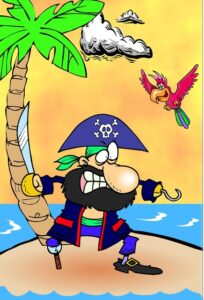
This question came up on Reddit this morning. Here’s my answer:
Like most writing advice, “You have to have a first-line hook” is wisdom-adjacent while managing to be both wrong and imprecise. Does “first line” mean the first printed line or the first sentence? It’s wrong either way, but pointless ambiguity is a hallmark of oft-repeated writing advice.
First-line hooks are great. I love them to pieces. But they’re not essential; let’s not overvalue them.
Let’s reject the “line” part first. The position of the first line break on the printed page is irrelevant. Typography isn’t destiny.
How about the first sentence? I sometimes read a book for the first time and its opening sentence grabs me hard enough that I remember it years later, well enough to quote an approximation of it. This makes the story as a whole more vivid and easier to talk about. And, of course, I have no choice but to keep reading. I benefit; the author benefits.
A vivid and memorable first sentence is a good thing to have. Does it also have to take the form of a hook? No. “Call me Ishmael” isn’t hooky in the usual sense at all, not in the way that, “I was riding down the old high road and came upon a ventriloquist and his dummy dangling from a tree” is.
How about a hook in the first paragraph or two? It’s in the same ballpark as the first sentence, but less quotable from memory and with more of everything else.
Good Openings
Good stories tend to open with a burst of authorial confidence, even swagger. Sometimes blatant, sometimes almost concealed. That’s potent stuff! A hook is often an alternative to this: something more within the grasp of relative beginners.
For example: “In a hole in the ground there lived a hobbit. Not a nasty, dirty, wet hole, filled with the ends of worms and an oozy smell, nor yet a dry, bare, sandy hole with nothing in it to sit down on or to eat; it was a hobbit-hole, and that means comfort.”
I don’t know about you, but I have no defenses against Tolkien when he’s displaying his carefully crafted playfulness, and it was hard for me to stop reading after looking this up.
Setting the Stage
And the first paragraph or two begin converting the reader’s experience from a blank screen to either a story or the promise of a story Real Soon Now. Either way, it’s simultaneously setting expectations and satisfying them in the sense of, “Whatever it is I’m reading, I want more.”
Which reminds me of an old joke:
Q: How does an IBM salesman make love?
A: He sits on the edge of the bed all night telling her how good it will be.
As writers, we need to take off our metaphorical trousers before the reader falls asleep or even looks at their watch. If we aren’t master stylists, we should probably get a move on.
As with theater, every scene requires some stage-setting. That goes double for the opening of a story. The reader knows nothing: all they have is anticipation. They’re in the same situation as Roger Rabbit: “Who turned out the lights? Boy, it’s dark in here. I can’t see a thing! What’s going on?”
We want to ease the reader past the initial darkness and bring the scene into focus with a minimum of bewilderment.
This is at its most difficult at the beginning of the story, when the reader is at their most ignorant. If we can orient them to the situation, engage their interest, and evoke some kind of appropriate emotional response or other, we’re golden. Readers will take this as a good sign and keep reading.
In my reading, I make decisions quickly. So do a lot of other people. Take the Amazon free samples of stories, for example. I never make it to the end of the sample unless I’m going to buy the story. The samples aren’t very long, either.
So if your story begins with a few lackluster pages and the rest is pure gold, I’ll never know it.
